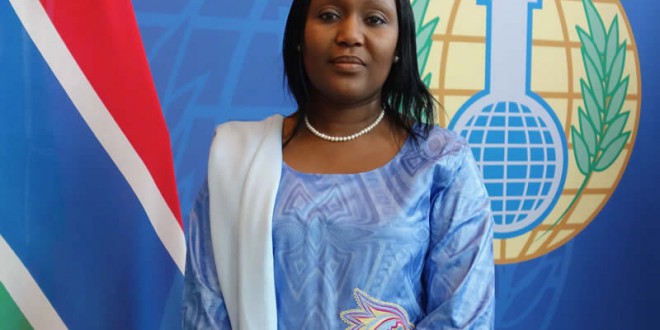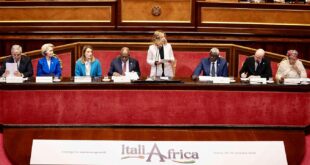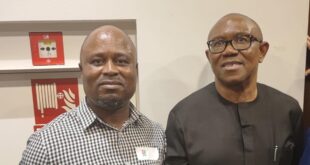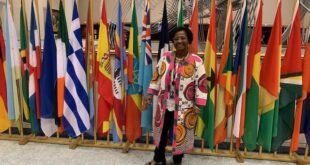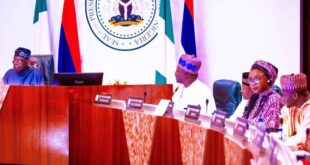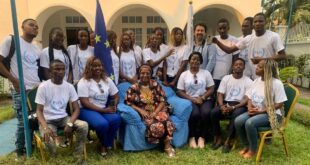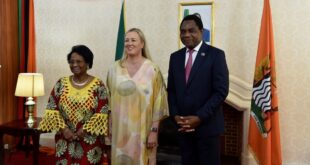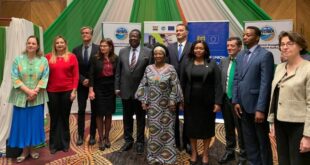“We will also encourage the Diaspora to engage the mission”
In an exclusive interview with our correspondent Ousainou Bayo, Gambia’s ambassador to the European Union, HE Mrs Teneng Mba Jaiteh (pictured), talks about the challenges of her work, the focus of her country’s foreign policy and what the The Gambia is doing to attract more foreign investment and tourists, among other issues of interest.
You’re the ambassador to the European Union and concurrently accredited to some other countries including Germany and international organisations. That must be challenging.
It is quite challenging and interesting. It is exciting and interesting being in Brussels, the seat of the European Union. Dealing with the European Union means dealing with the member states individually and collectively. Dealing with member states is also not very difficult because each of them has an embassy in Brussels.
I cover seven states – Germany, Poland, Belgium, the Netherlands, Luxemburg, Slovakia and the Czech Republic, and a host of organisations such as the African Caribbean Pacific Group, the International Criminal Court in The Hague, the Organisation for Prohibition of Chemical Weapons, the World Custom Organisation and the World Trade Organisation. It is quite challenging bearing in mind that we are a relatively small mission with a wide coverage; however, I have very competent and professional staff making the work all the more exciting and easier.
What does your work entail?
Our work is guided by The Gambian foreign policy, which, among other things, seeks to promote the political, economic and social interests of The Gambia, developing and enhancing cordial relations with partner countries and organisations as well as taking care of the consular and other needs of Gambians in the Diaspora.
Could you give us an insight into how you achieve these objectives?
We try to engender economic co-operation with partner countries and encourage their private sector to engage with The Gambia. We share as widely as possible the development blueprints, namely our Vision 2020 and the medium-term Programme for Accelerated Growth and Employment.
We try to showcase what has been done in terms of national development – in areas such as infrastructure – roads and telecommunications, and energy sector developments, as well as education and skills enhancement. These are basic catalysts for growth and private sector development, especially for attracting foreign direct investment. We also share with potential investors The Gambia’s investment guide which provides favourable incentives for foreign investments as well as providing protection for such investments.
Statistics show that tourist arrivals have slowed down. What are you doing to encourage more tourists to visit The Gambia?
Arrivals have slowed down directly due to the Ebola crisis in West Africa, even though The Gambia is Ebola-free with not a single case of the disease recorded. The Ministry of Tourism embarked on a sensitisation mission with the aim of informing partners, including tour operators, that there was no Ebola in The Gambia and that efforts have been made to ensure that this is maintained.
The mission is also working with partners, including airlines, to encourage them to market and promote The Gambia as a choice destination. Our mission is steadfast in sensitisation and engaging with operators in countries under our jurisdiction.
We also use every platform available during our various engagements to promote The Gambia as a choice destination that has a diversified product of not only sea, sun and sand, but cultural as well as eco-tourism offered all year round with high-standard hotels and great service. We believe that such collective efforts will yield fruitful results in the up-coming tourist season.
What are your expectations of The Gambians in the Diaspora to make your work easier?
I really want to engage the Gambians in the European Diaspora. We believe that the mission is not only to serve the welfare of the Gambians in the Diaspora but also to engage them positively, for a more meaningful and sustained contribution to the economic growth of the country.
We are all aware of the role remittances play in our economy. We believe that in addition to remittances there is much more to explore in various areas – for example, private sector investments by Gambians abroad, setting up charitable organisations, providing direct support to community development programmes in villages and towns in The Gambia or twinning them with towns where they reside abroad, etc. This, we believe, will greatly complement the positive strides already achieved by the government in its bid to bring development to every village and hamlet in The Gambia.
We already know that a lot is already being done in some of these areas; but it is my intention to catalogue these where possible and showcase them so that others can also emulate such activities. We will also encourage the Diaspora to engage the mission so that by working together we can develop stronger ties to support the government’s development aspirations.
Some African countries have signed agreements with the German government on the issue of dual citizenship for their citizens here in Germany. How do you see such a possibility for Gambians?
The Gambian constitution allows for dual citizenship. One can be a Gambian and also be a citizen of another country. If there is any possibility of the German government waiving the requirement for renunciation of Gambian citizenship prior to acquiring a German citizenship, this will be something that we will welcome positively.
Lastly, your Excellency, what advice do you have for Gambians in Germany?
The advice I would give to Gambians abroad is that they are ambassadors of their country and as such they have to abide by the laws of the country in which they live and be positively and productively engaged – be they students or people who have decided to make Germany their home. They should always remain steadfast in whatever they are engaged in and work very hard. I would also advise that they should strive to maintain the link with the embassy and also with their people back home.
———————-
Ambassador Teneng Mba Jaiteh
HE Mrs Teneng Mba Jaiteh (52) was educated at the University of Sierra Leone’s Fourabay College and the London School of Economics. She holds a BA in History and an MSc in Development Studies. She has served her country in various positions such as the Secretary to the Government and Head of the Civil Service, Secretary to the Cabinet and as Minister of Energy.
Ambassador Jaiteh has attended numerous local and international workshops and seminars and represented The Gambia in various sub-regional, regional and international meetings on development issues.
Photo: © Embassy of the Republic of The Gambia
Contact:
Embassy of the Republic of The Gambia
Avenue Franklin D. Roosevelt 126
B-1050 Brussels
Tel: +32 2 640 10 49
Fax: +32 2 646 32 77
http://gambiaembassybrussels.be/
 THE AFRICAN COURIER. Reporting Africa and its Diaspora! The African Courier is an international magazine published in Germany to report on Africa and the Diaspora African experience. The first issue of the bimonthly magazine appeared on the newsstands on 15 February 1998. The African Courier is a communication forum for European-African political, economic and cultural exchanges, and a voice for Africa in Europe.
THE AFRICAN COURIER. Reporting Africa and its Diaspora! The African Courier is an international magazine published in Germany to report on Africa and the Diaspora African experience. The first issue of the bimonthly magazine appeared on the newsstands on 15 February 1998. The African Courier is a communication forum for European-African political, economic and cultural exchanges, and a voice for Africa in Europe.

